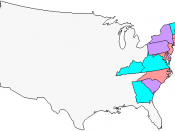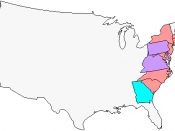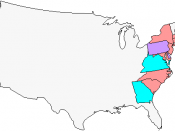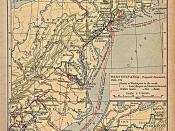Many students assume that once the Revolutionary War was over, the country was solidified and unified. Therefore, it is helpful to review certain key issues such as states' rights, fear of a standing army, and fear of factions. Anti-Federalists argued again and again that a national government was merely a prelude to the establishment of an aristocratic class. Indeed, many Anti-Federalists drew upon the rhetoric of the Revolution to argue against a strong national government.
The Federalist conception of human nature as essentially selfish and depraved is also important to note, since Federalists relied on such conceptions to justify their call for a mildly interventionist national government. Students are often shocked to learn that the word "democracy" was not held in high regard as it is today, and are interested in the distinctions between democracy, monarchy, and republicanism.
For years, many scholars have contended that the Federalists were basically conservative upper-class supporters of the status quo, and that the Anti-Federalists were more "populist."
Scholars such as Herbert J. Storing have recently suggested, however, that, if anything, Anti-Federalists were more conservative than their Federalist counterparts, as evidenced in the fact that many Anti-Federalists feared the very idea of change and experimentation that would result from the new form of government proposed by the Federalists.
It is also helpful to introduce students to some of the basic ideas of writers such as Hobbes, Locke, and Montesquieu, all of whose writings influenced the Constitution to varying degrees.





